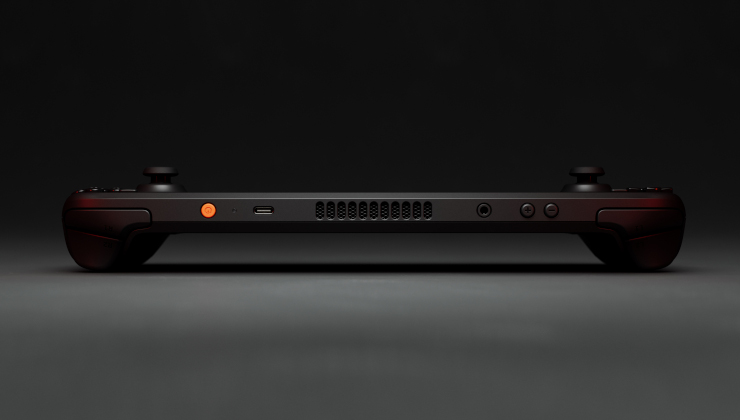Some more good news for you as according to statistics website Statcounter, Linux use hit another all-time high in July 2024. We've seen it slowly creep up over time, just like we've seen on the Steam Survey as well.
For July 2024, they're showing Linux at 4.45% which is the highest they've ever had it.
Here's how things have looked over the last year:
- July 23 - 3.12%
- August 23 - 3.18%
- September 23 - 3.02%
- October 23 - 2.92%
- November 23 - 3.22%
- December 23 - 3.82%
- January 24 - 3.77%
- February 24 - 4.03%
- March 24 - 4.05%
- April - 3.88%
- May - 3.77%
- June - 4.05%
- July - 4.45%
Since 2009:
See more on Statcounter.
Is this where we truly get to say it's the year of Linux on the desktop? Not quite. It's only one measurement, and it comes with the usual pinch of salt based on how they pull their data which they say is from "more than 1.5 million sites globally". Still, it's an interesting way to track it and it's still great news.
Some you may have missed, popular articles from the last month:
All posts need to follow our rules. For users logged in: please hit the Report Flag icon on any post that breaks the rules or contains illegal / harmful content. Guest readers can email us for any issues.
Ladies and Gentlemen, que up `BagRaiders_ShootingStars.wav`, Linux has never been better!
Last edited by ElectricPrism on 1 Aug 2024 at 10:44 pm UTC
Last edited by ElectricPrism on 1 Aug 2024 at 10:44 pm UTC
2 Likes
it's important to point out that the Linux option isn't Windows, and that things aren't going to act the same, and that the software you'll use won't be the same.
I like to encourage people to use cross-platform software. Have you tried LibreOffice? It's free. Have you tried Firefox or Chrome, instead of the browser that comes with Windows? (IE was extremely bad, then slightly less bad, and nowadays Edge is available for Linux if you *really* want it). Once they are used to using quality open-source software, switching out the OS underneath is easier. And even if they don't go that far, at least the other stuff gets mind-share, instead of propping up worse alternatives.
5 Likes
The worst things get, the more Linux comes in to save the day! Kind of Ironic, the wasteland warlords of the future will all be running Linux!
3 Likes
I think part of it is that some Linux DEs mimic the desktop paradigm of older Windows versions much closer than MacOS does, which masks the differences.The thing is, that can be entirely enough for a sizable category of use cases. Sure, look just a bit under the surface and it's different . . . but many users don't do that, so for them it is not different. My wife, for instance, uses the browser and makes documents and that is almost it. She just got a new computer, which I put Linux on. I moved her files and browser bookmarks across from her old Chromebook (which was slowly dying), put browser launchers and LibreOffice Writer on the taskbar, showed her where her files are, and after a short breaking in period she's happy with it. She may or may not ever even look at the menus to see what other software is loaded in there. So for her there is no functional difference between Chromebook, Linux Mint, and Windows . . . except that Windows is nagware and its frequent vaguely ominous popups would make her anxious.
At some point she will want to fiddle with a picture or something and she will experience a real OS being better than ChromeOS.
2 Likes
However, there is some hope that MS will restrict kernel access after the Crowd Strike disaster, making this kind of anti-cheat impossible to implement down the road.
What happened to that story, if I may ask? Last I heard is that MS used the old EU anti-trust law as scapegoat for why they can't kick crowdtrike and co. out of the kernel, are there any updates to this story?
2 Likes
The thing is, that can be entirely enough for a sizable category of use cases. Sure, look just a bit under the surface and it's different . . . but many users don't do that, so for them it is not different.Yeah – I was thinking about what I wrote later in the day after posting, that I didn't mean to imply "we should only introduce people to Linux with a less-familiar DE". I think what I said was mostly about a certain class of Windows power users who would have to learn/unlearn/relearn the most when switching because their prior Windows knowledge no longer applies (like, I dunno, editing the registry). For lots of people who don't need or want to go deeper, the surface familiarity of various Linux DEs is a great asset.
2 Likes
Yeah – I was thinking about what I wrote later in the day after posting, that I didn't mean to imply "we should only introduce people to Linux with a less-familiar DE". I think what I said was mostly about a certain class of Windows power users who would have to learn/unlearn/relearn the most when switching because their prior Windows knowledge no longer applies (like, I dunno, editing the registry). For lots of people who don't need or want to go deeper, the surface familiarity of various Linux DEs is a great asset.
That middle group has, by far, the hardest time switching to Linux.
The biggest chunk of computer users aren't interested at all in computers. It doesn't matter at all to them whether they're using Windows, Linux, MacOS, Android, iOS, a BSD, ChromeOS, or anything else. That simply doesn't register. They have a computer as an appliance, to run applications as tools, to do the bits that they are actually interested in. Apple has a lot to offer these kinds of customers. And these kinds of people would also have zero issue with Linux provided their computer came with it already - either from the shop directly or because their tech support (whether that's their employer's IT department or the "tech support" of a friend or family member) had set it up for them.
People that are interested in computers also have no real trouble with Linux. You can control everything yourself, you can learn everything yourself, you can change everything yourself - right down to the kernel of the OS. This is catnip. These people are also adaptable enough that they can make do with any OS.
But then there's the middle group. The Windows Power Users. Microsoft have had decades of stranglehold on the computers these people have any experience of. All of their knowledge, all of their skills, all of their intuitions are Windows-only. But they don't know that. They think that they're "good with computers." And Linux will make them pay for their vanity and arrogance over and over as they break their computer by doing ridiculous Windows things.
Some of these are going to push through into the second, more technical, group, and they'll be fine. But the ones that don't are the ones that will be incredibly vocal about how "if I, a Windows Power User, kept breaking my computer, Linux must be rubbish." Linux revealed the gaps in their knowledge, and they didn't like that.
We don't need to court the second group. They'll find Linux on their own. We can't court the first group - they're never going to install any OS in a million years. They need the computers they buy to come with Linux, and the computers provided by their schools and workplaces to come with Linux, and to do the things they need a computer to do. We have only limited ability to affect things for the middle bunch. Reacting negatively to things that make one feel stupid is human nature. We can try to give them realistic expectations of their actual skill levels before they start. We can try to make things not break when people mistakenly do Windows-only things on not-Windows. We can try to be patient, as it comes up, to help people continue their journey rather than loudly bounce off.
But that first group is where the growth is, which needs computers to come with the OS it will have for its lifetime. As Microsoft have done. As Apple have done. As Google have done. And, to a much smaller degree (for now?), as Valve have done.
10 Likes
But then, I've never successfully inducted a new member myself, so I might just be talking nonsense. To be fair, I've never tried.
As for me, I did that successfully for some people (I'm not talking about gaming only).
It's not a lot, but it's something.
But sure, keep in mind that they have to be open minded in the first place and/or a bit curious about the whole thing and why it matters etc...
2 Likes
We don't need to court the second group. They'll find Linux on their own. We can't court the first group - they're never going to install any OS in a million years. They need the computers they buy to come with Linux, and the computers provided by their schools and workplaces to come with Linux, and to do the things they need a computer to do. We have only limited ability to affect things for the middle bunch. Reacting negatively to things that make one feel stupid is human nature. We can try to give them realistic expectations of their actual skill levels before they start. We can try to make things not break when people mistakenly do Windows-only things on not-Windows. We can try to be patient, as it comes up, to help people continue their journey rather than loudly bounce off.Your entire comment is 100% right. And after thinking about it some more, I think presenting the middle group with the option of Linux, while being essentially the only group any of us have the chance to affect, is mostly a waste of time on both sides. They want Windows, and Linux is never going to be Windows. But there's something to be said for the middle group pushing their way through to being part of the second group—which I was definitely a part of. I knew very little about computers before I installed Linux, but I was pretty familiar with Windows. Now I feel like I know a few things about computers.
I would certainly never have tried Linux had I not been presented with the option. But I was never desperate to leave Windows, so I wasn't as concerned with feature parity. I was just curious. And very familiar with feeling stupid, anyway
We can try to make things more familiar and easier to transition to (and we should!), but in the end I feel like the only thing we can give the middle group is a reason. A reason to give Linux a try. Nothing more than that; the rest is up to them. And no hard feelings either way...it's your computer, after all. And for everyone else, it's up to the corporates, schools, and governments as you say. Completely out of our hands.
5 Likes
crowdtrike and co.Greatest. Typo. Ever.
2 Likes
People that are interested in computers also have no real trouble with Linux.
This would be me. After MS drove me to Linux when I had to replace a failed HDD, I have positively enjoyed learning from the new experiences and challenges that Linux has brought me. I am kind of glad that their backup tool failed on the drive swap.
Last edited by Caldathras on 2 Aug 2024 at 5:36 pm UTC
2 Likes
Your entire comment is 100% right. And after thinking about it some more, I think presenting the middle group with the option of Linux, while being essentially the only group any of us have the chance to affect, is mostly a waste of time on both sides. They want Windows, and Linux is never going to be Windows. But there's something to be said for the middle group pushing their way through to being part of the second group—which I was definitely a part of. I knew very little about computers before I installed Linux, but I was pretty familiar with Windows. Now I feel like I know a few things about computers.The Deck does a number of things to help the casual user and the Windows Power User. It gives the reason that you've highlighted by being a desirable gaming handheld (which, notably, the Steam Machines lacked).
I would certainly never have tried Linux had I not been presented with the option. But I was never desperate to leave Windows, so I wasn't as concerned with feature parity. I was just curious. And very familiar with feeling stupid, anyway
We can try to make things more familiar and easier to transition to (and we should!), but in the end I feel like the only thing we can give the middle group is a reason. A reason to give Linux a try. Nothing more than that; the rest is up to them. And no hard feelings either way...it's your computer, after all. And for everyone else, it's up to the corporates, schools, and governments as you say. Completely out of our hands.
The casual users are already sorted at this point: they've bought a machine with Linux on, and it's great.
The Windows Power Users can't really break it by Windowsisms because the filesystem is read-only. Windowsisms just fail, but don't break anything. Going back to Windows is removed as an option: it's explicitly going to Windows because the machine comes with Linux, and by all accounts the Windows experience after you've put in the effort is a lot worse than the Linux experience was. It forces them to slow down and do things the Linux way. Then, should they have enjoyed the experience of using Linux & want to try it on a different machine, they'll have already started the process of having not-Windows knowledge - they'll have already got over the "everything that's different from Windows is incorrect" mindset.
It also does a lot to correct perception issues. This is clearly not a "Linux is for contrary weirdos" situation: it's a mainstream device from a company that they've likely already heard of, and likely already have an extensive relationship with. Linux is the normal, standard, default option, and the people that either install Windows on the Deck or get one of the Windows handhelds from the smaller players are the contrary weirdos.
And, as far as we can tell, it's continuing to be very successful: the Linux Steam number is still going up and the Deck is still the number 1 top seller on Steam.
Last edited by CatKiller on 3 Aug 2024 at 11:30 am UTC
5 Likes
Kinda looks like it's gaining momentum...Don't you mean gaming momentum... (Sry)
2 Likes
Kinda looks like it's gaining momentum...Don't you mean gaming momentum... (Sry)
Go home, autocorrect, you're drunk.
1 Likes
linux needs actual real native games and more people will come. emulation isnt ideal.
0 Likes
linux needs actual real native games and more people will come. emulation isnt ideal.
That ship has sailed years ago.
2 Likes
linux needs actual real native games and more people will come. emulation isnt ideal.That has quite literally nothing to do with it. The average gamer doesn't give a single crap about the game being native or not. Why should they? If they click play and it runs, that's all people really need. This argument has been done to death by now.
1 Likes













 How to set, change and reset your SteamOS / Steam Deck desktop sudo password
How to set, change and reset your SteamOS / Steam Deck desktop sudo password How to set up Decky Loader on Steam Deck / SteamOS for easy plugins
How to set up Decky Loader on Steam Deck / SteamOS for easy plugins
See more from me